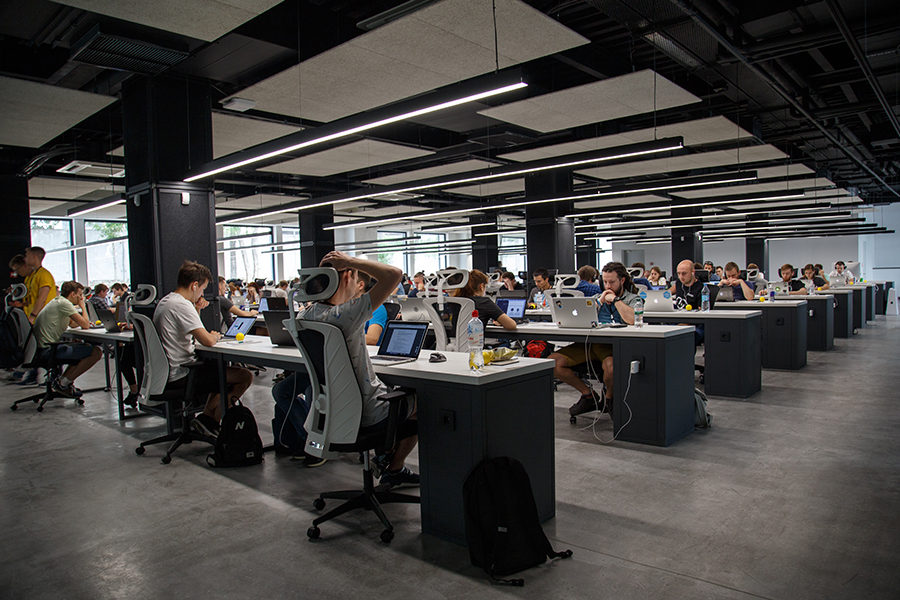"Kenya’s vaunted Silicon Savannah continues to advance the prominence of e-commerce and online shopping throughout the continent of Africa.”
Kenya’s vaunted Silicon Savannah continues to advance the prominence of e-commerce and online shopping throughout the continent of Africa. Online retailer Jumia, headquartered in Nairobi, grossed $597 million in 2017, expanding its reach from four countries to 14.[1] Now, as Africa’s startup epicenter seeks to attract more international investors, tech-savvy entrepreneurs and local suppliers, it is catalyzing a profound shift in consumer behavior across Africa.
Leapfrogging the Retail Divide
Megacompanies like Amazon and Alibaba have changed the core of retail shopping in western and eastern markets, but the continent of Africa has yet to witness the ascendance of tech gurus like Jeff Bezos or Jack Ma. For Africa, that’s just fine. A new generation of young tech pioneers is driving digital transformation throughout the continent, and changing the way consumers not only purchase products, but organize their lives.
For decades, markets in Africa have been incredibly challenging places to shop. Online shopping and digital banking, however, are enabling African retailers and consumers to leapfrog from shopping experiences defined by antiquated infrastructure, unreliable banking mechanisms and poor distribution processes, to streamlined e-commerce experiences. The impact of improved online connectivity (Kenya ranks among the world’s fastest internet speeds[2]) and M-Pesa, the mobile banking platform that streamlines financial transactions and microfinancing, are leading a revolution in consumer expectations throughout Africa. This elevation of consumerism, will not be spread evenly throughout the continent.
The Incomparable Future of Africa
Investors are learning that digital transformation in Africa will not evolve in the same ways as in western and eastern cultures. Human intuition posits that economic priorities and trends in one area of the world can serve as precedence for other areas of the world. But this ilk of thinking is misguided with respect to the circumstances in Africa. The explosion of the middle class in places like China will not be reflective of increasing wages across Africa. Multinational corporations must be mindful that different cultures espouse different values, and those values guide how populations perceive, save and spend money.
The African continent, and its 1.2. billion people, live in very different nations and cultures. Investors and financial prognosticators cannot approach Africa with the same strategies and expectations as they do other large populations, such as India’s 1.32 billion people or China’s 1.38 billion people. Africa’s spectrum of governments, cultures and economic scenarios span a vast array of unique obstacles and opportunities. Africa’s rising middle class isn’t as intent on purchasing products that symbolize societal status or seeking individual attention. Instead, Africa’s consumers are proving to be more conservative, and are reallocating extra income to savings or family networks in areas with less economic viability.[3]
Africa, Technology & Time
One of the top-selling items on Jumia is disposable diapers, which provides a glimpse into how consumers in Africa are prioritizing their financial resources.[1] The obsolescence of traditional cloth diapers for more expensive disposable diapers indicates that convenience and time management are leading drivers of purchases in an evolving continent. Though luxury items such as cosmetics have failed to gain traction, e-commerce is changing consumer behavior when it comes to providing the most valuable resource in anyone’s life: time. It all begins with access to the internet.
Eighty-five percent of Kenya’s population is online.[4] As the country’s hubs in Nairobi and Mombasa continue to attract innovative companies and ambitious entrepreneurs, the businesses arising from the Silicon Savannah such as Twiga—which connects local farmers to stores in more urban settings—are changing everything from supply chains and distribution to the transparency of operations. In fact, technologies such as blockchain could significantly reduce corruption throughout Africa, saving tech startup entrepreneurs time (not months, but years) navigating costly bureaucracies and political quagmires when establishing their businesses.
Though the continent of Africa is full of rich and disparate cultures and countries, Kenya and the Silicon Savannah have proven to the international investment community that positive changes transcend borders and barriers. Kenya’s tech hubs are incubators for ideas and businesses that will transform not only Africa, but the world. After all, there was a moment when Amazon and Alibaba were small startups with big dreams. All they needed was a place to call home and time to grow. For African entrepreneurs that home is the Silicon Savannah… and the time is now.
1 Meet the Startup Building a Market From Scratch To Become Africa's Alibaba Matina Stevis-Gridneff
https://www.wsj.com/articles/with-c-o-d-and-goat-promotions-jumia-aims-to-be-africas-alibaba-1527073200?mod=e2tw
2 Kenya's Mobile Internet Beats the United States For Speed Lily Kuo
https://qz.com/1001477/kenya-has-faster-mobile-internet-speeds-than-the-united-states/
3 3 Things Multinationals Don't Understand About Africa's Middle Class William Attwell
https://hbr.org/2017/08/3-things-multinationals-dont-understand-about-africas-middle-class
4 Africa Internet Users, 2018 Population and Facebook Statistics
https://www.internetworldstats.com/stats1.html









